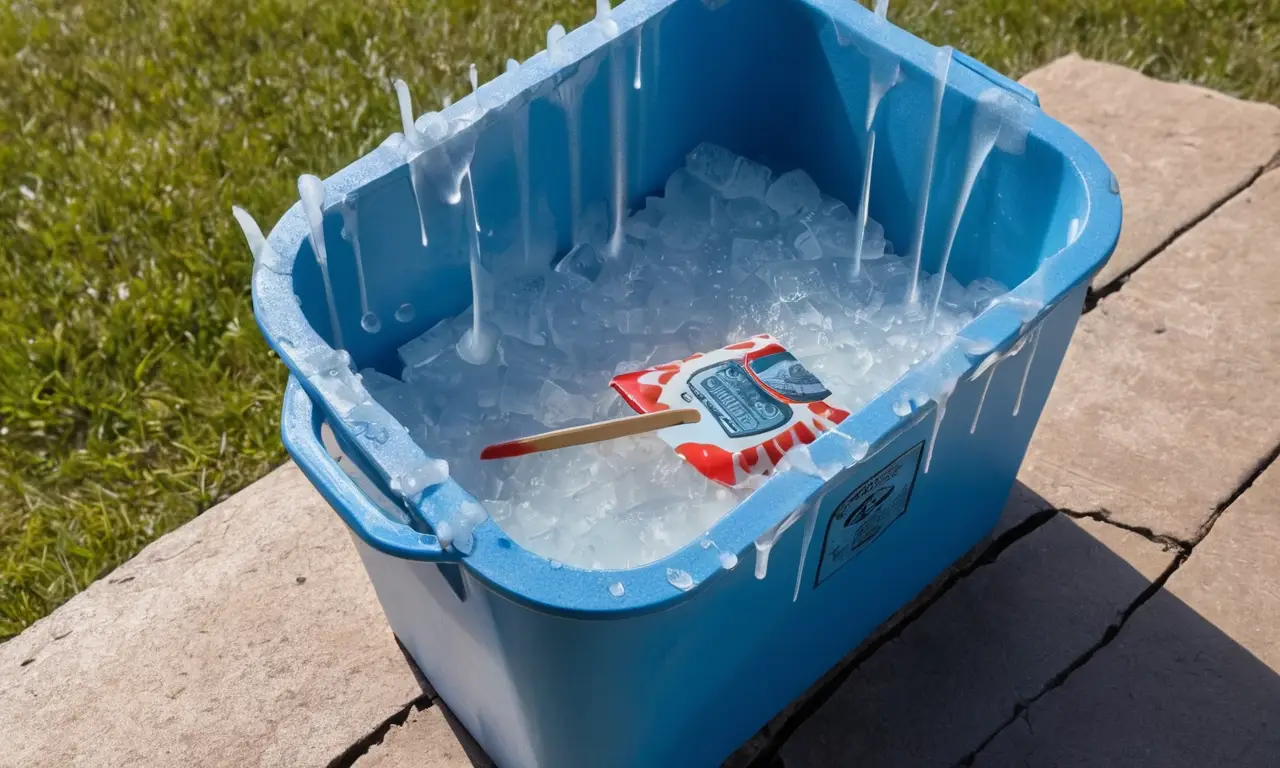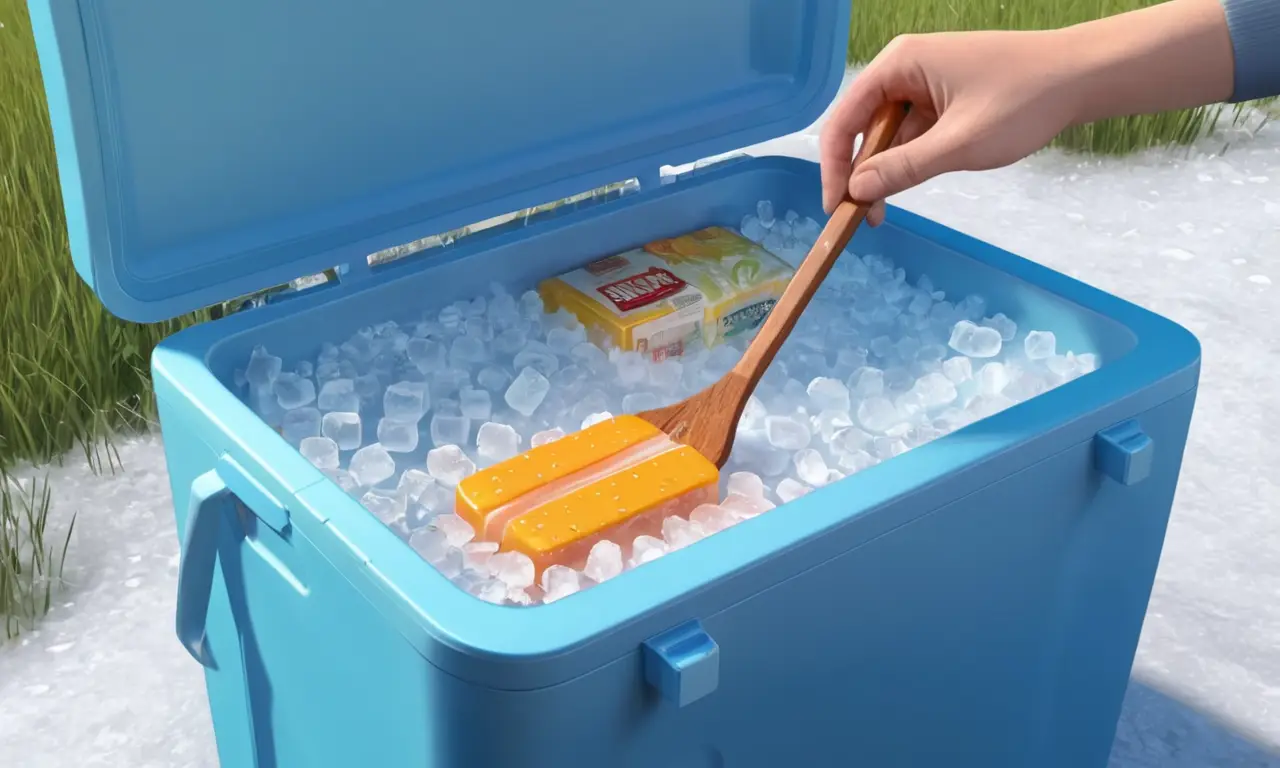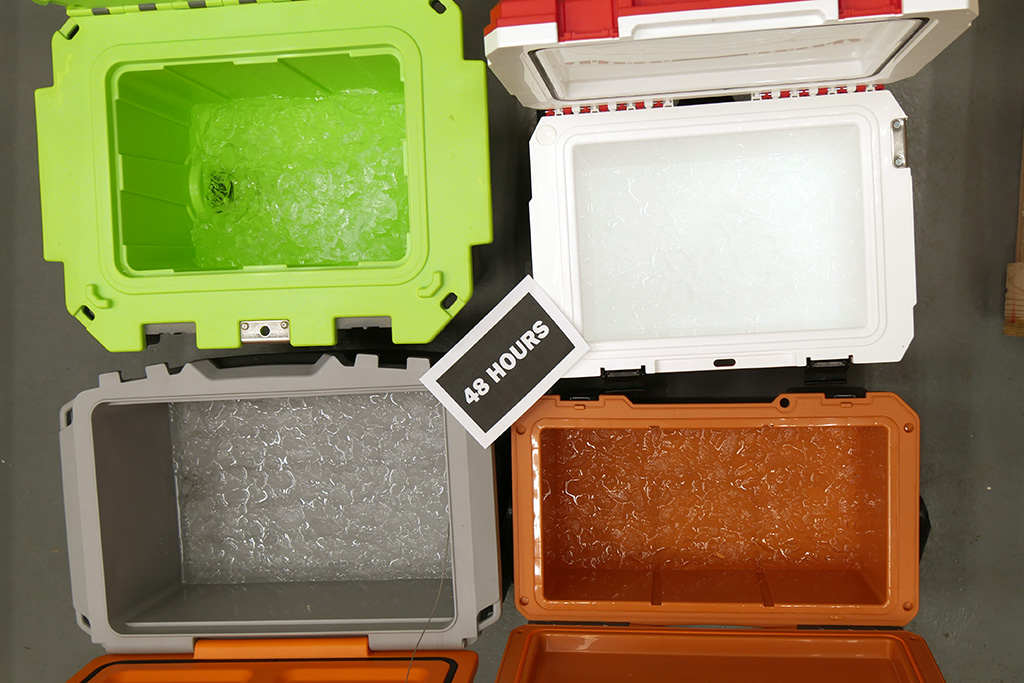Keeping your food and drinks cold on a hot day is essential, and a cooler is the perfect tool for the job. But how long does that ice actually last? The answer isn’t straightforward, as several factors influence how long does ice stay frozen in a cooler, how long does ice last in a cooler, or how long will a cooler stay cold.
This comprehensive guide will delve into the science behind ice retention and provide practical tips to maximize your cooler’s performance. We’ll explore the various factors that affect how long does ice last in a cooler, different types of coolers, and strategies to keep your ice frozen for as long as possible.
How Long Does Ice Last in a Cooler?
The lifespan of ice in a cooler is highly variable, ranging from a few hours to several days. Generally, well-insulated coolers can maintain ice for 1 to 5 days, while standard coolers may only keep things cold for 12 to 24 hours. The type of ice used also plays a role; block ice tends to last longer than cubed ice due to its larger size and slower melting rate.
Several factors contribute to this variation in ice life. The ambient temperature is a major player, with hotter temperatures causing ice to melt faster. Similarly, the cooler’s insulation quality directly impacts how well it retains cold air. A cooler with thicker walls and better sealing mechanisms will keep ice frozen for longer periods.
Factors Affecting Ice Retention

Understanding the factors that influence how long does ice stay in a cooler is crucial for maximizing your cooler’s performance. Here are some key considerations:
Ambient Temperature
The surrounding air temperature has a significant impact on ice melt rate. On a scorching summer day, ice will melt much faster than on a cool spring afternoon.
Cooler Insulation
A well-insulated cooler is essential for keeping ice frozen for extended periods. Look for coolers with thick walls, multiple layers of insulation, and tight-fitting lids to minimize heat transfer.
Cooler Size and Shape
Larger coolers tend to retain cold air better than smaller ones because they have a greater volume to maintain. The shape of the cooler also matters; rectangular coolers often provide more efficient space utilization compared to round or cylindrical shapes.
Frequency of Opening
Every time you open your cooler, warm air enters, causing the internal temperature to rise and accelerating ice melt. Minimize opening the lid as much as possible to preserve cold air.
Types of Coolers and Ice Life
Different types of coolers offer varying levels of insulation and performance.
Standard Coolers
These are the most common type of cooler, typically made from plastic with basic insulation. They can keep ice cold for 12 to 24 hours, but not much longer.
High-Performance Coolers
Designed for extended ice retention, these coolers feature thicker walls, multiple layers of insulation, and advanced sealing mechanisms. They can maintain ice frozen for 1 to 5 days or even longer in ideal conditions.
Soft-Sided Coolers
These flexible coolers are lightweight and portable but generally offer less insulation than hard-sided models. They’re suitable for short trips or picnics but may not be ideal for extended outings.
Tips to Maximize Ice Time

Here are some practical tips to extend the life of your ice:
Pre-Chill Your Cooler
Before packing, place frozen water bottles or ice packs inside the cooler to pre-chill it. This helps create a colder starting temperature.
Pack It Tightly
Leave as little empty space as possible in your cooler. Items packed tightly minimize air pockets that can trap heat and accelerate melting.
Use Block Ice
Block ice melts slower than cubed ice due to its larger size and lower surface area exposed to warm air.
Minimize Opening the Lid
Every time you open the cooler, warm air enters, raising the internal temperature. Only open it when necessary and close it promptly.
Conclusion
Understanding how long does ice stay in a cooler, how long does ice last in a cooler, or how long will a cooler stay cold depends on various factors. By considering these elements and implementing the tips outlined in this guide, you can maximize your cooler’s performance and keep your food and drinks refreshingly cold for longer periods. Remember to choose a well-insulated cooler, pack it tightly, pre-chill it, and minimize opening the lid to extend ice life and enjoy your outdoor adventures.



